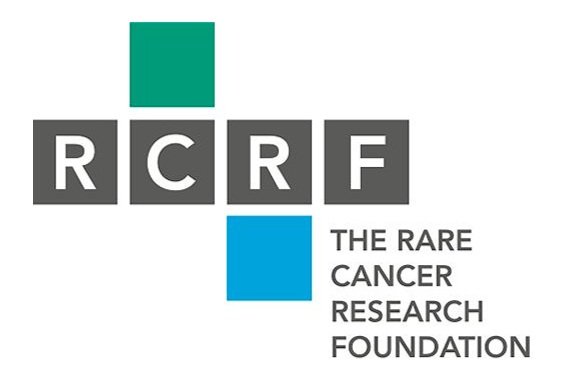General FAQ
-
For our purposes and in alignment with the National Cancer Institute, rare cancers are defined as those with an incidence of fewer than 15 cases per 100,000 people each year. This roughly equates to cancers with less than 40,000 new diagnoses in the U.S. each year and includes uncommon subtypes of “common” cancers such as breast, prostate and lung. All pediatric, brain, head and neck, sarcomas, as well as many other cancers, are included in the “rare cancer" classification.
RCRF is part of the movement supporting rare cancer patients as champions of precision medicine. Precision medicine is a relatively new way of treating patients based on their unique genetic profile, lifestyle, and environment. Instead of a one-size-fits-all approach, doctors use personalized information to choose the best treatments for each person.
We build a big tent approach where rare cancer patients are leading the way with the hope that patients throughout the cancer ecosystem will benefit.
-
There are many different types of rare and less common cancers, as well as rare subtypes of common cancers. Some examples of these cancers include gallbladder cancer, neuroendocrine tumors, uveal melanoma, penile cancer, pseudomyxoma peritonei (PMP) tumor, small bowel cancer, soft tissue sarcoma and upper tract urothelial cancer (UTUC).
-
Pattern.org is an initiative of the Rare Cancer Research Foundation and is our patient-engagement platform where patients can opt into sharing fresh tissue or fluid samples from upcoming procedures, stored tissue samples that are at treating hospitals and/or medical records for use by the research community. All samples and clinical data inputs are de-identified before sharing with researchers. Pattern.org will continue to build out features that are directly designed to benefit rare cancer patients over time, so opt-in to share your tissue and/or data today!
-
RCRF is a nonprofit that provides resources to researchers and patients (including pattern.org) and forges powerful partnerships with advocacy organizations and biomedical institutions. Click here to watch our explainer video.
If you still have questions, please feel free to email us: info@rarecancer.org
-
We have collected a number of valuable resources for patients with rare cancers, which can be found here: https://rarecancer.org/resources
We also partner with a number of rare cancer patient advocacy foundations and support groups, which can be found here: https://rarecancer.org/patients-advocacy-partners
-
There are a variety of ways in which you can contribute to our work. If you are a cancer patient or researcher, please visit our respective tabs on this website for more information on how you can be directly involved.
No matter who you are, we are always honored to receive monetary donations which go directly towards building programs to help rare cancer patients thrive. If you are interested in supporting us in that way, please visit our Donate tab.
Any level of involvement makes a difference, no matter how small it may feel. Feel free to tell friends, cancer patients, caregivers, clinicians, nurses or researchers about us, repost or share our work on your social media, launch a Facebook fundraiser on our behalf or subscribe to receive our monthly newsletter. We are honored to have you as a part of our community – no matter what role is right for you.
-
It's always your choice to donate tissue samples or medical data, and if you decide to do so, there are rules and ethical guidelines in place to protect you. Your donated tissue can help drive research that helps others in the future and researchers can only use your biospecimens if they have your consent.
-
RCRF, a 501(c)3 non-profit, is funded through individual and major gift donations, foundation and government grants, online fundraising initiatives, corporate sponsorships and partnerships, program fees, investment income and in-kind contributions.
-
Our team is “virtual” and spread across the country. We were founded and are registered as a non-profit in North Carolina and the majority of our biobanking capabilities and biologistics team are located there, so we’ve kept our mailing address in Durham.
-
The Rare Cancer Research Foundation is a 501(c)3 non-profit organization based in North Carolina. No goods or services were provided in consideration for this donation. Please print or save your donation confirmation to substantiate your contribution and consult with your tax advisor about the deductibility of your donation.
-
A donation contribution will be sent to you at the email address you provide at time of donation. Please ensure to keep a copy of your receipt for tax purposes. If you select a monthly recurring donation, you will receive a receipt each month when your donation is processed.
-
Your donation becomes even more impactful if your company has a “Matching Gifts” plan. “Matching Gifts” are donations a company gives to match its employees’ charitable contributions. These typically are at a dollar-for-dollar rate, but some companies go even further by tripling or quadrupling their employee’s donations. Please check with your Human Resources office to see if such a program is available and if so, obtain the appropriate form. The Rare Cancer Research Foundation is able to accept employer-matched gifts.
-
We also gratefully accept memorial monetary donations. Families have found it beneficial to include verbiage in the obituary, such as:
“In lieu of flowers, memorial donations may be made to the Rare Cancer Research Foundation online at rarecancer.org or 703 Foster St., Durham, NC 27701”
Donors can indicate their gift is in memory of a loved one; we’ll notify the family that the donor has made a memorial gift.
More questions? Contact us.
